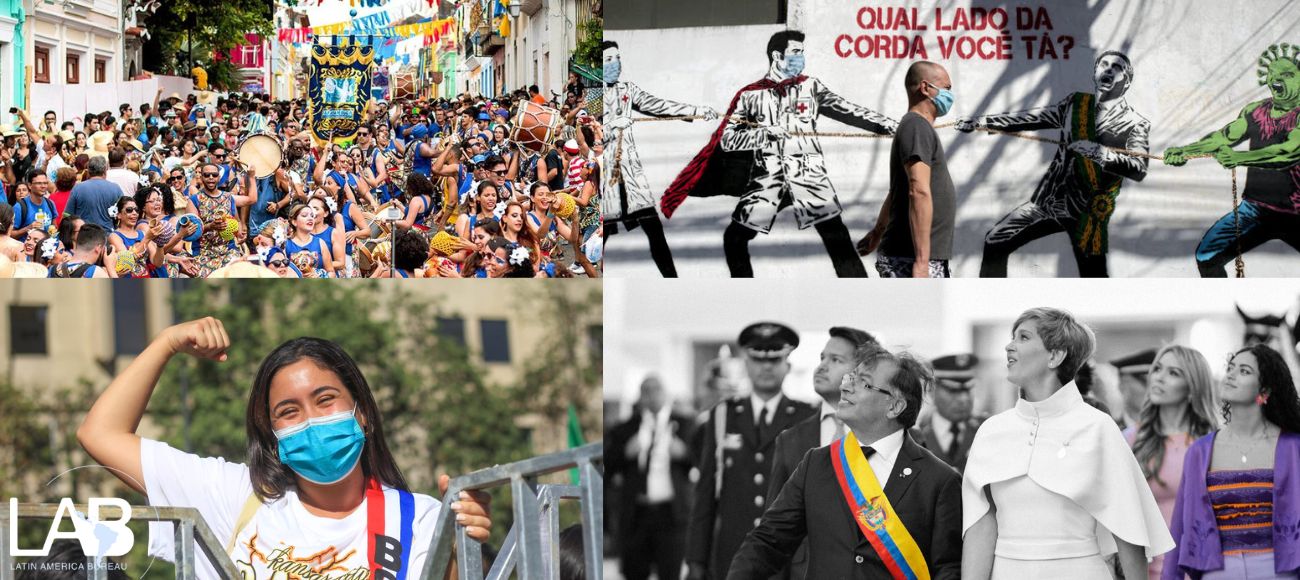What did last year’s widespread demonstrations in Brazil actually achieve? A Brazilian commentator says that is the right that has benefited. The interpretation of June’s demonstrations that has gained most space in the “big media” talks about a “nation waking up”. A version that has also been echoed in social media, in communities whose watchword, whether naive or not, expresses a fascination for an old moralistic and legalistic nationalism. However, after eight months, it is becoming increasingly clear which “giant” has “woken up” and with which mission. At the beginning of this election year, it is surprising that such a strong consensus has emerged among the group of actors who make up our political and economical elite. It can be seen in the constant attacks on the “violence” spearheaded by an alleged “minority of vandals”, who were apparently “infiltrated” in the demonstrations. The tragic death of a camera man has been used to legitimise a new witch hunt. From this tragedy, our elites have made clear their answer for addressing June’s demonstrations. Political reform? Social legacy from the World Cup? A plan to make public transport cheaper and better? None of that is on the agenda. The answer has been quite different. With a significant endorsement from large media groups, the powers that be have opted instead for launching a new set of measures in the name of the “safety” of demonstrators within a very short period of time. But we need to ask: whose safety is being protected and safety from what? The answer can be seen in recent actions undertaken by the authorities. During this year’s demonstrations, we have seen an escalation of police violence against demonstrators. In São Paulo, on 22nd February, 262 demonstrators were sieged, assaulted and “arrested to be checked” by hundreds of non-identified military policemen. The reason, provided by a colonel from the military police in response to a question from a journalist from São Paulo, is scary – and utterly illegal: “We had to act and intercept [the siege] before there was any breakdown in order, since there was an imminent and serious likelihood [of a riot], according to undercover agents”. However, even scarier was the support offered by the Ministry of Justice, which also seems to champion the idea of introducing new laws to legitimise the violent repression of mass-based demonstrations by the state. That is the case of bill 449, which intends to create the crime of “terrorism”, including in its scope the concept of “terrorism against things” (which includes “damage” to buses, tube stations and stadiums), with prison sentences of up to 30 years. The situation is not any different outside São Paulo and Rio de Janeiro. We need look only at the way in which on 12 February about 6,000 citizens, including around a thousand children, who were protesting in front of the Federal High Court in Brasilia against the slowness with which those accused on crimes committed in rural areas are brought to trial, were dealt with very brutally. Or consider the way in which various indigenous communities, from the interior of Bahia to Humaitá in the Amazon region and to the centre-west of Brazil, were openly attacked by the federal government and its allies, the large landowners. All of the protesters accused of acting “violently”. From these recent facts, the question arises: would the “giant” who has woken up be the same one who spearheaded the military coup some fifty years ago? But this time maybe what is at stake is not the risk of a coup against the current federal government but rather, because of the extent of the consensus behind the government’s use of repression, the risk of suffering some of the typical consequences of a coup, without actually experiencing one.
This article was translated for LAB by Andréa Castellano Mostaço. Original article in Portuguese can be found here: http://www.emtempo.com.br/editorias/dia-a-dia/15807-julinho-do-areal-nega-ser-um-assassino-em-serie-de-taxistas.html


